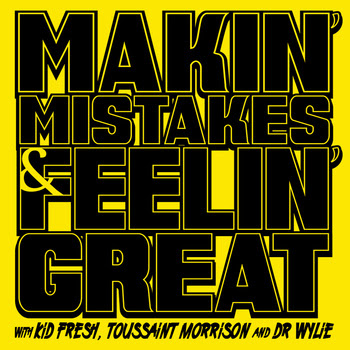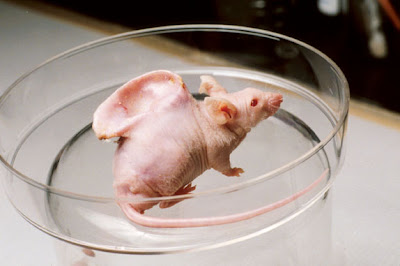The weather has changed, seemingly overnight.
Suddenly there's that cool, fresh feel in the air, despite it still being early August. The oppressive, sweltering heat of summer is already on the decline and we Minnesotans are free to venture out of doors and into the streets. I've been able to slowly start running again, having gotten an immensely helpful brace for my knee. Getting out and pounding the pavement, pulling in the cool air in the morning is exhilarating. It makes me feel alive, despite the knowledge that winter is out there, waiting to send us all into hibernation. In the meantime, we've got to live it up. The Pizza Luce Block Party is tonight and I plan on checking out the scene, as there are tons of great acts on the bill. Knowing there's something so awesome (and totally free!) out there makes me so happy - that it's so popular only makes it better. We've got to get out and seize the day!
To get in the mood for a night out with great tunes, I want to spread the good word about Young the Giant. While some of you may already be aware of who they are and just why they're so great, I want to do all I can to let the world know how fantastic they are. This fresh band from California has been getting tons of praise in the last year. Their single 'My Body' is just the kind of thing you can put on, crank up and really feel like something good is going to happen. Propelled by this passionate single, Young the Giant's eponymous debut album has been selling like crazy. The band has had tons of airplay and made numerous TV appearances in support of it.
This single, with its thumping rhythm and U2-mimicking guitars, is a joyous affair, worthy of all the adoration it has received. The driving hook, with singer Sameer Gadhia wailing "My body tells me no, but I won't quit cause I want more!" is moving and sincere. This positive and unflappable perspective is a refreshing change of pace from the world at large. When life seems overwhelming and stressful, as it certainly can if you watch too much of the news cycle, songs like this can be a re-invigorating reminder not to throw in the towel. It's insanely catchy and well written, the parts all building to a grandiose whole that lifts up the listener. I love everything about it - from the rolling drums to the churning bass to clean and shining echo of the guitars.
While Young the Giant has been riding a wave of success, our fickle and ADD afflicted worlds move on too quickly. Technically speaking, this single already peaked on the charts. That hardly matters, though, as the song is so solid and lovely that it deserves a spot in everyone's playlist, regardless of a spot on the Billboard charts. Do yourself a favor and give it a listen. I'll see you all tomorrow, after I've enjoyed a night full of adventure.
Suddenly there's that cool, fresh feel in the air, despite it still being early August. The oppressive, sweltering heat of summer is already on the decline and we Minnesotans are free to venture out of doors and into the streets. I've been able to slowly start running again, having gotten an immensely helpful brace for my knee. Getting out and pounding the pavement, pulling in the cool air in the morning is exhilarating. It makes me feel alive, despite the knowledge that winter is out there, waiting to send us all into hibernation. In the meantime, we've got to live it up. The Pizza Luce Block Party is tonight and I plan on checking out the scene, as there are tons of great acts on the bill. Knowing there's something so awesome (and totally free!) out there makes me so happy - that it's so popular only makes it better. We've got to get out and seize the day!
To get in the mood for a night out with great tunes, I want to spread the good word about Young the Giant. While some of you may already be aware of who they are and just why they're so great, I want to do all I can to let the world know how fantastic they are. This fresh band from California has been getting tons of praise in the last year. Their single 'My Body' is just the kind of thing you can put on, crank up and really feel like something good is going to happen. Propelled by this passionate single, Young the Giant's eponymous debut album has been selling like crazy. The band has had tons of airplay and made numerous TV appearances in support of it.
This single, with its thumping rhythm and U2-mimicking guitars, is a joyous affair, worthy of all the adoration it has received. The driving hook, with singer Sameer Gadhia wailing "My body tells me no, but I won't quit cause I want more!" is moving and sincere. This positive and unflappable perspective is a refreshing change of pace from the world at large. When life seems overwhelming and stressful, as it certainly can if you watch too much of the news cycle, songs like this can be a re-invigorating reminder not to throw in the towel. It's insanely catchy and well written, the parts all building to a grandiose whole that lifts up the listener. I love everything about it - from the rolling drums to the churning bass to clean and shining echo of the guitars.
While Young the Giant has been riding a wave of success, our fickle and ADD afflicted worlds move on too quickly. Technically speaking, this single already peaked on the charts. That hardly matters, though, as the song is so solid and lovely that it deserves a spot in everyone's playlist, regardless of a spot on the Billboard charts. Do yourself a favor and give it a listen. I'll see you all tomorrow, after I've enjoyed a night full of adventure.
























